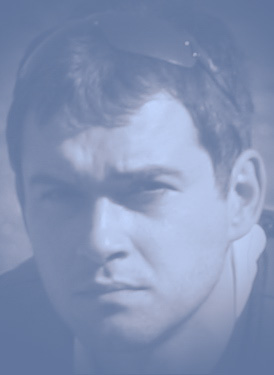
Author's Biography
Milan Kundera (CZE)* 01.04.1929Milan Kundera (Czech: [ˈmɪlan ˈkundɛra]; born 1 April 1929) is the Czech Republic's most recognized living writer. Of Czech origin, he has lived in exile in France since 1975, having become a naturalised citizen in 1981. He "sees himself as a French writer and insists his work should be studied as French literature and classified as such in book stores." Kundera's best-known work is The Unbearable Lightness of Being. His books were banned by the Communist regimes of Czechoslovakia until the downfall of the regime in the Velvet Revolution of 1989. He lives virtually incognito and rarely speaks to the media. A perennial contender for the Nobel Prize in Literature, he has been nominated on several occasions. Kundera was born in 1929 at Purky≈àova ulice, 6 (6 Purky≈àova Street) in Brno, Czechoslovakia, to a middle-class family. His father, Ludvík Kundera (1891–1971), once a pupil of the composer Leoš Janáƒçek, was an important Czech musicologist and pianist who served as the head of the Janáƒçek Music Academy in Brno from 1948 to 1961. Milan learned to play the piano from his father; he later studied musicology and musical composition. Musicological influences and references can be found throughout his work; he has even included musical notation in the text to make a point. Kundera is a cousin of Czech writer and translator Ludvík Kundera. He belonged to the generation of young Czechs who had had little or no experience of the pre-war democratic Czechoslovak Republic. Their ideology was greatly influenced by the experiences of World War II and the German occupation. Still in his teens, he joined the Communist Party of Czechoslovakia which seized power in 1948. He completed his secondary school studies in Brno at Gymnázium t≈ôída Kapitána Jaroše in 1948. He studied literature and aesthetics at the Faculty of Arts at Charles University in Prague. After two terms, he transferred to the Film Faculty of the Academy of Performing Arts in Prague where he first attended lectures in film direction and script writing. In 1950, his studies were briefly interrupted by political interferences. He and writer Jan Trefulka were expelled from the party for "anti-party activities." Trefulka described the incident in his novella Pršelo jim štƒõstí(Happiness Rained On Them, 1962). Kundera also used the incident as an inspiration for the main theme of his novel ≈Ωert (The Joke, 1967). After Kundera graduated in 1952, the Film Faculty appointed him a lecturer in world literature. In 1956 Milan Kundera was readmitted into the Party. He was expelled for the second time in 1970. Kundera, along with other reform communist writers such as Pavel Kohout, was partly involved in the 1968Prague Spring. This brief period of reformist activities was crushed by the Soviet invasion of Czechoslovakia in August 1968. Kundera remained committed to reforming Czech communism, and argued vehemently in print with fellow Czech writer Václav Havel, saying, essentially, that everyone should remain calm and that "nobody is being locked up for his opinions yet," and "the significance of the Prague Autumn may ultimately be greater than that of the Prague Spring." Finally, however, Kundera relinquished his reformist dreams and moved to France in 1975. He taught for a few years in the University of Rennes. He was stripped of Czechoslovak citizenship in 1979; he has been a French citizen since 1981. He maintains contacts with Czech and Slovak friends in his homeland, but rarely returns and always does so incognito. Awards and honours In 1985, Kundera received the Jerusalem Prize. His acceptance address is printed in his essay collection The Art of the Novel. He won The Austrian State Prize for European Literature in 1987. In 2000, he was awarded the international Herder Prize. In 2007, he was awarded the Czech State Literature Prize.[33] In 2010, he was made an honorary citizen of his hometown, Brno. In 2011, he received the Ovid Prize. The asteroid 7390 Kundera, discovered at the Kle≈• Observatory in 1983, is named in his honor. Works The Joke (≈Ωert) (1967) Short story collection Laughable Loves (Smƒõšné lásky) (1969) Poetry collections ƒålovƒõk zahrada širá (Man: A Wide Garden) (1953) Essays O sporech dƒõdických (About the Disputes of Inheritance) (1955) Drama Majitelé klíƒç≈Ø (The Owner of the Keys) (1962) http://en.wikipedia.org/wiki/Milan_Kundera |
